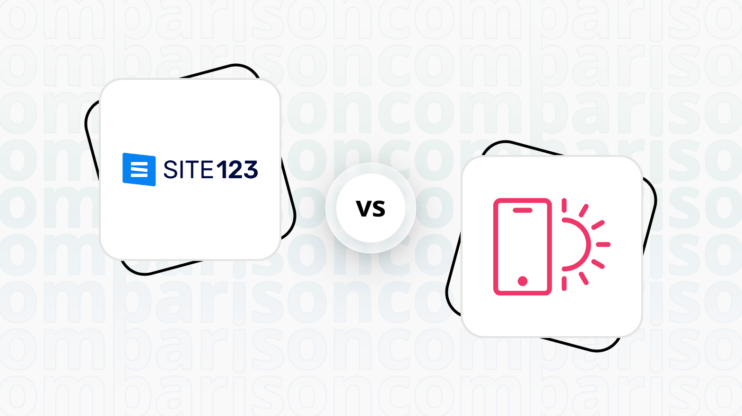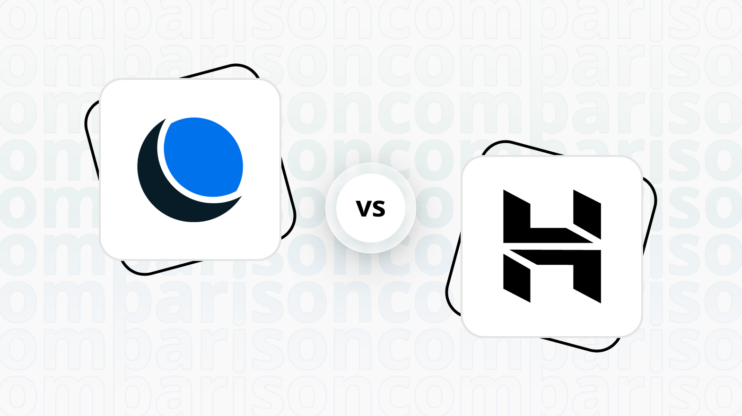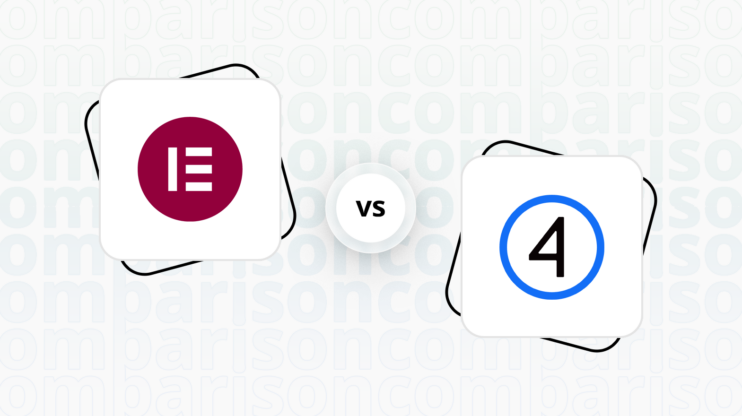Yola vs SubHub: Final verdict
Yola and SubHub both offer unique features tailored to different user needs, but they cater to distinct audiences.
-
Yola (Overall Grade: 6.5/10)
is a versatile website builder ideal for individuals and small businesses looking to create professional websites without advanced technical skills. It offers a user-friendly drag-and-drop interface, a wide range of customizable templates, and essential features like SEO tools and e-commerce capabilities. Yola excels in ease of use, design functionalities, and hosting quality, making it a solid choice for users seeking a comprehensive solution for their online presence. -
SubHub (Overall Grade: 5.6/10)
is specifically designed for content creators and entrepreneurs aiming to build and monetize membership sites. It provides tools for setting up subscription models, managing member access, and offering exclusive content. While SubHub may not have the same level of design flexibility or general e-commerce capabilities as Yola, it shines in its niche, offering a user-friendly platform for managing membership-based businesses.

|

|
|
|---|---|---|
|
Design functionalities & templates |
7.2 |
6.8 |
|
Ease of use |
8.0 |
7.7 |
|
Ecommerce |
5.7 |
5.9 |
|
Website Editors |
6.7 |
6.9 |
|
Product testing options |
7.5 |
7.0 |
|
Price |
8.1 |
6.8 |
|
Hosting quality |
7.2 |
5.5 |
|
Website speed optimization |
7.5 |
5.6 |
|
Plugins and integrations |
6.3 |
5.7 |
|
Marketing features |
6.5 |
5.7 |
|
Customer support |
6.3 |
6.3 |
|
Security |
8.3 |
4.0 |
|
AI capabilities |
0.0 |
0 |
|
User Management |
7.3 |
5.2 |
Which one is the best for ecommerce: Yola or SubHub?
 5.7
5.7
 5.9
5.9
Verdict
: Yola and SubHub cater to different ecommerce needs. Yola is better suited for small businesses looking to sell a variety of products, while SubHub excels in membership and subscription-based ecommerce.
-
Yola
: Yola is designed for small businesses and individuals who want to sell products online. It offers a user-friendly drag-and-drop interface and integrates with Ecwid for ecommerce capabilities. However, it lacks scalability and a marketplace for extensions. Yola’s ecommerce features include shipping and tax configurations, product catalog management, and guest checkout options. It scores 5.7 for ecommerce. -
SubHub
: SubHub is tailored for content creators and entrepreneurs focusing on membership and subscription models. It provides tools for setting up subscriptions, managing member access, and offering exclusive content. SubHub supports PayPal and Stripe for payment processing and allows for physical and digital product listings. It scores 5.9 for ecommerce.
Which one is the best for informational and business websites?
 7.4
7.4
 7.2
7.2
Verdict
: Yola slightly edges out SubHub for informational business websites due to its broader range of templates, ease of use, and comprehensive security measures.
-
Yola
: Yola is a user-friendly website builder designed for individuals and small businesses. It offers a drag-and-drop interface, making it easy to create professional-looking websites without advanced technical skills. Yola provides a variety of responsive and customizable templates, ensuring that websites look great on any device. With features like SEO tools, e-commerce capabilities, and custom domain publishing, Yola is a comprehensive solution for creating and managing an online presence. Scoring 7.4, Yola is particularly well-suited for those looking to establish an informational business website with ease. -
SubHub
: SubHub is tailored for creating and managing membership sites, making it ideal for content creators and entrepreneurs aiming to build a community and monetize their content. It simplifies setting up subscription models, managing member access, and providing exclusive content. While SubHub is user-friendly and efficient for membership-based businesses, it is more specialized and may not offer the same level of flexibility for general informational business websites. Scoring 7.2, SubHub is best for those focused on membership and subscription-based models.
Yola vs SubHub: Detailed comparison
Design functionalities & templates
Design FunctionalitiesRepresents how well each platform allows for creative design and customization of websites.Score Components:
- Template Variety (30%): Range and quality of design templates.
- Customization (30%): Flexibility and options for design alterations.
- User Interface (20%): Ease and intuitiveness of the design process.
- Responsiveness (10%): Adaptability to different devices and screen sizes.
- Innovation (10%): Unique design features and tools.
 7.2
7.2
 6.8
6.8
🏆
Winner: Yola.
Yola offers a wider range of templates and designs, more customization flexibility, and more creative design possibilities than SubHub.
Yola offers a diverse range of templates and designs, catering to various types of websites, from personal blogs to professional business sites. Users can choose from a wide selection of themes, each customizable to fit their specific needs and preferences. With hundreds of templates available, Yola ensures that there is something for everyone, regardless of their niche or industry.


On the other hand, SubHub website builder offers a variety of customizable membership website templates designed to cater to different needs and themes. There are 14 specifically themed templates available, each designed to help users jump-start the design of their membership website homepages. These templates are fully customizable, allowing users to modify layouts, add or remove sections, and tailor content to fit their brand.
Get a head start on website creation with AI
Create a custom website tailored to your business needs 10X faster with 10Web AI Website Builder!
Ease of use
Ease of useReflects the platform’s overall user-friendliness.Score
Components:
- Learning curve (40%): Quickness and ease of getting started.
- Interface design (30%): Simplicity and intuitiveness of layout.
- User guidance (20%): Quality of tutorials and support.
- Flexibility (10%): Adaptability to various user skills.
 8.0
8.0
 7.7
7.7
🏆 Winner: Yola
. Scoring 8.0, Yola is slightly easier to use than SubHub, which scores 7.7. Yola’s drag-and-drop interface and straightforward design tools make it a convenient choice for individuals and small businesses looking to establish an online presence. SubHub, while user-friendly, is more specialized, focusing on building membership websites and online courses.
Learning Resources
🏆 Winner: Tie
. Both Yola and SubHub offer a variety of learning resources, including tutorials, guides, and video tutorials. However, neither platform has a large community of users.
For ecommerce
EcommerceMeasures the platform’s effectiveness in supporting online business activities.Score Components:
- Ecommerce themes and templates (20%): Variety and design of templates.
- Product management (25%): Ease of managing and organizing products.
- Payment options (25%): Variety and convenience of payment methods.
- Ecommerce features (20%): Features for managing an ecommerce store.
- Integration (10%): Compatibility with external e-commerce tools and services.
 5.7
5.7
 5.9
5.9
Yola and SubHub both offer ecommerce capabilities, but they cater to different needs. Yola is more suitable for small businesses and individuals who want to sell a variety of products online. It offers an easy-to-use, drag-and-drop website builder with ecommerce capabilities through an integration with Ecwid. However, its ecommerce features may be limited by the lack of tiered options for scalability and a conventional CMS dashboard, as well as the absence of a marketplace for extensions and plugins.
On the other hand, SubHub is designed for content creators and entrepreneurs who want to monetize their content through membership and subscription models. It offers a range of tools tailored for setting up subscription models, managing member access, and providing exclusive content.

|

|
|
|---|---|---|
|
Ecommerce themes and templates |
5.5 |
3.0 |
|
Product page customization |
6.8 |
6.5 |
|
Payment processing and commissions |
7.0 |
7.0 |
|
POS capabilities |
4.5 |
0.0 |
|
Payment gateways |
7.5 |
6.0 |
|
Product numbers |
7.0 |
5.0 |
|
Additional ecommerce features |
6.0 |
4.5 |
Yola ecommerce features:
- Shipping and Tax configurations
- Product Catalog Management
- Ability to checkout as guest
- Analytics and reporting
- Promotions features
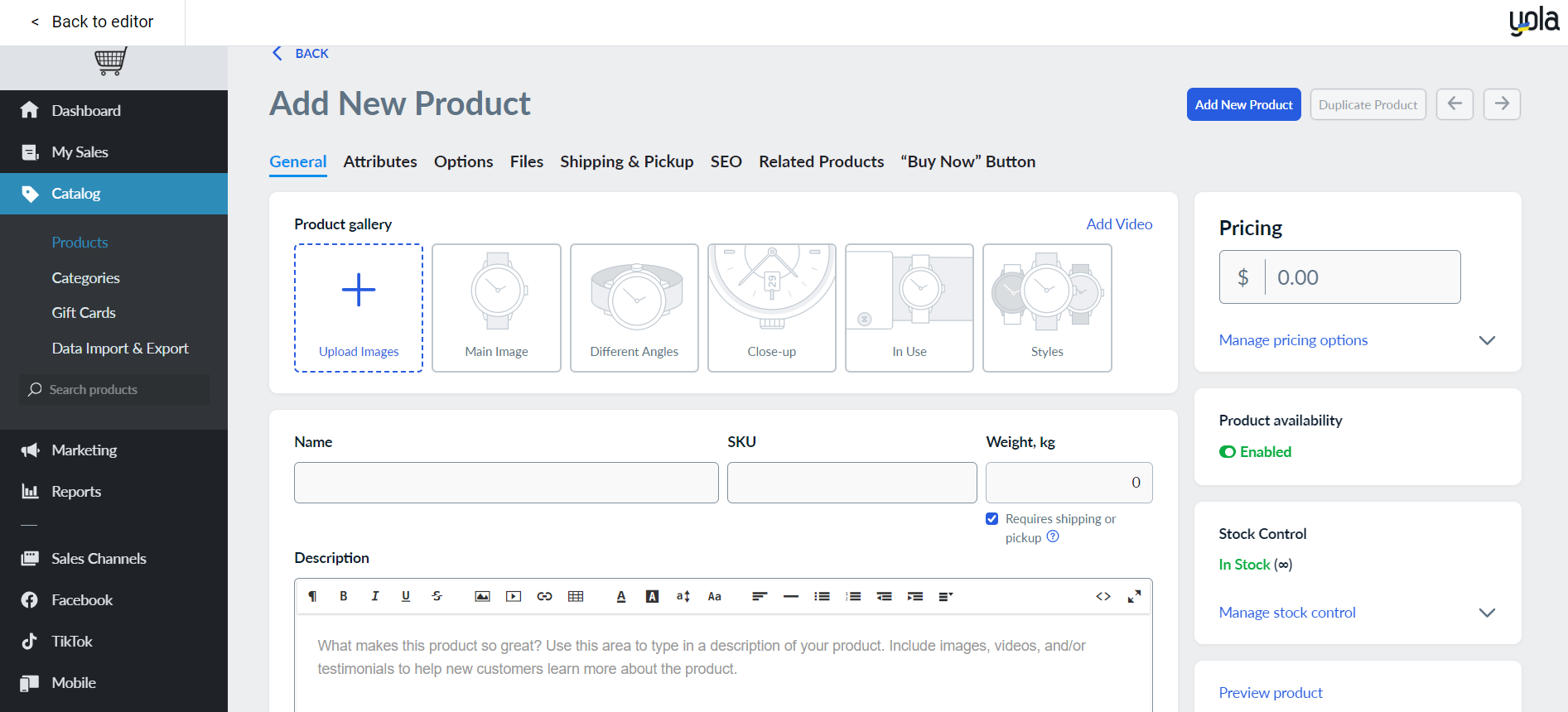
SubHub ecommerce features:
- Paypal and Stripe integration
- Physical and Digital product listings
- Pay-per view products
Ecommerce themes & templates
Yola offers a range of templates for building websites, including those suitable for ecommerce, but the variety and design quality may not match those provided by other leading website builders. The templates are customizable, especially for users on higher-tier plans (Silver or Gold), which allow for deeper customization, including CSS editing. While Yola supports ecommerce functionality, the emphasis on the number and variety of ecommerce-specific templates is less pronounced, suggesting a more generalized approach to template offerings.
SubHub, on the other hand, does not have ecommerce specific templates. This might limit the customization options for users who want to create a unique and personalized online store.
Product page customization
Yola’s eCommerce platform offers a variety of customization options for your product pages, including the ability to manage product options and combinations. This feature is especially useful for selling items that come in different sizes, colors, or models, allowing customers to select their preferences directly from the product page. Furthermore, Yola supports variable pricing for these product options, enabling you to adjust prices based on the specific variant chosen by the customer.
SubHub offers a range of product page customization options, allowing for the addition of physical items, digital downloads, and pay-per-view content. Features include the ability to manage product variants, upload images, and set visibility preferences. Users can also implement SEO strategies through meta tags and manage tax settings. Additional functionalities include member-specific discounts, image carousels, and individualized shipping costs.
Payment processing
When it comes to payment processing, Yola supports various payment gateways for online store transactions, such as PayPal, Sage Payments, and American Express, allowing users to choose based on their specific needs, including geographical availability and fee structure. While Yola doesn’t directly charge commission fees for transactions, the chosen payment gateway might impose its own fees, including transaction and possibly monthly fees.
SubHub supports two main payment gateways: Stripe and PayPal. These integrations allow for secure payment processing for subscriptions and store items using debit or credit cards. The platform itself does not charge commissions on transactions.
Website Editors
Website EditorsEvaluates the platforms’ website building and editing capabilities.Score Components:
- Customization tools (40%): Range and power of editing features.
- Editor usability (30%): User experience within the editor.
- Design flexibility (20%): Freedom in layout and design changes.
- Update and maintenance ease (10%): Simplicity of updating and maintaining the site.
 6.7
6.7
 6.9
6.9
🏆
Winner: SubHub
. SubHub, with a score of 6.9, offers a user-friendly website builder tailored for creating and managing membership sites. Its features encompass customizable templates, diverse content publishing options, and flexible subscription plans with seamless integration for recurring revenue through payment processors. Additionally, SubHub supports online course creation, provides marketing tools like landing page builders, and offers detailed analytics for monitoring website metrics.
Yola’s website builder editor, scoring 6.7, is designed for ease of use, allowing users to create professional-looking websites without needing coding knowledge. It offers a drag-and-drop interface, enabling users to easily add, customize, and position elements like text, images, and buttons on their web pages. The editor also provides access to a wide range of templates and customization options, including color schemes, fonts, and page layouts, to help users achieve their desired website look and feel.
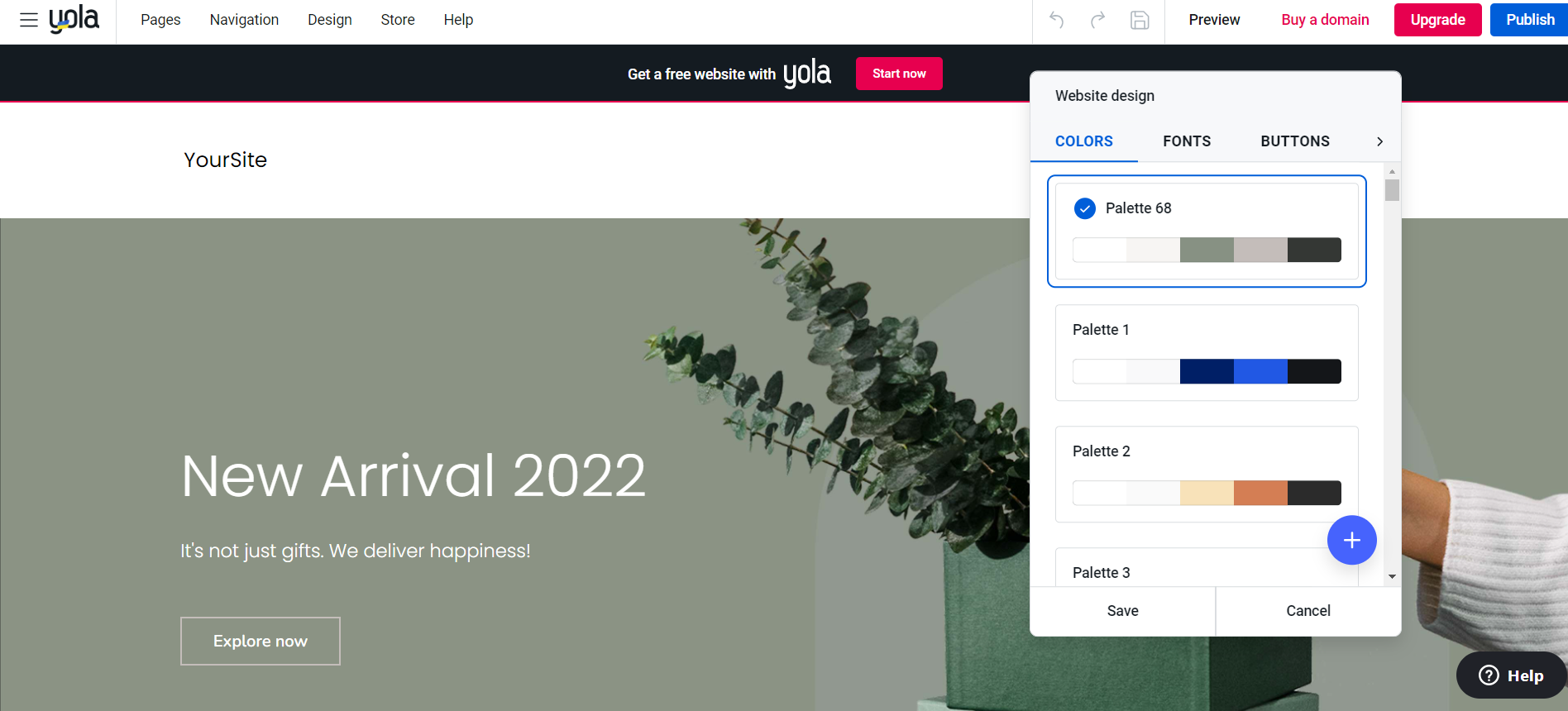
Mobile editor/app
 4.5
4.5
 4.0
4.0
🏆
Winner: Yola
. Both Yola and SubHub do not have a dedicated mobile editor app. However, they allow some level of content management through the mobile browser version. Unfortunately, neither platform supports layout and design changes on mobile. Despite these limitations, Yola scores slightly higher than SubHub in the mobile editor category, making it the winner in this comparison.
Product testing options
Product Testing OptionsAssesses the options for trying out platform features before commitment.Score Components:
- Trial quality (40%): Extent and usefulness of the trial or free version.
- Feature accessibility (30%): How many features are available to test.
- Trial duration (20%): Length of the trial period.
- Ease of transition (10%): Smoothness of moving from trial to paid plans.
 7.5
7.5
 7.0
7.0
Overall Result
:
Yola wins
. Yola scores 7.5 in product testing options, slightly higher than SubHub’s 7.0. Yola offers a free version and a 30-day refundable period for testing premium features, while SubHub provides a 14-day free trial and a 7-day money-back guarantee.

|

|
|
|---|---|---|
|
Free Plan |
Yes |
No |
|
Trial Duration |
No |
14 days |
|
Testing Premium Features |
During the 30-day refund period |
During the free trial |
|
Money Back Guarantee |
30 days |
7 days |
Price
PriceLooks at the cost-effectiveness and value for money of each platform.Score Components:
- Plan value (40%): What each pricing tier offers.
- Transparency and clarity (30%): Clearness of pricing structures.
- Flexibility of plans (20%): Range of options to suit different budgets.
- Hidden costs (10%): Additional expenses not included in the plan.
 8.1
8.1
 6.8
6.8
Yola offers a wider range of plans, including free and paid options, and the possibility to add an online store as an add-on. SubHub, on the other hand, offers three plans, each with a different set of features and storage limits.

|

|
|
|---|---|---|
|
Free |
Free (Website) ($0/month): Basic features with Yola subdomain, suitable for starting a simple site. With possibility to have up to 2 websites and 2 page limit. Free (Online Store Add-on) ($0/month): Launch an online store with basic features and a limited number of products. Available as an add-on to a website plan. |
No offering at this amount. |
|
$0-$10 |
Bronze (Website) ($9.45/month): More resources and features, including unlimited pages and bandwidth. With possibility to have up to 5 websites. Value for price: 7.5 |
No offering at this amount. |
|
$10-$15 |
Basic (Online Store Add-on) ($15.00/month): Includes inventory tracking, order management, and the ability to sell on Facebook. Available as an add-on to a website plan. Value for price: 7.0 |
No offering at this amount. |
|
$15-$20 |
Silver (Website) ($18.95/month): Advanced design features and site customization options. With possibility to have up to 25 websites. Value for price: 8.0 |
No offering at this amount. |
|
$30-$35 |
Professional (Online Store Add-on) ($35.00/month): Advanced features including discount coupons, product filters, and sales on multiple platforms like Facebook and Instagram. Available as an add-on to a website plan. Value for price: 8.0 |
No offering at this amount. |
|
$35-$50 |
Gold (Website) ($35.45/month): Comprehensive plan with unlimited storage and advanced SEO tools. With possibility to have up to 25 websites. Value for price: 8.5 |
Starter ($47/month): Up to 500 members, 5 GB storage, secure payment processing, course builder, 5 landing pages, e-commerce. Value for price: 6.5 |
|
$90+ |
Unlimited (Online Store Add-on) ($99.00/month): The most extensive plan offering a vast product catalog, point of sale integrations, and more, for expanding online business. Available as an add-on to a website plan. Value for price: 9.0 |
Pro ($97/month): Up to 2000 members, 50 GB storage, removes SubHub branding, 15 landing pages, along with Starter features. Value for price: 7.5 |
location. As a result in rare cases the prices displayed here can differ from the ones you see on their
websites.
Hosting quality
Hosting
qualityExamines the reliability and performance of the hosting solutions.Score Components:
- Uptime (40%): Consistency and reliability of website availability.
- Speed (30%): Loading times and performance.
- Bandwidth and storage (20%): Sufficiency of resources provided.
- Data centers (10%): Quality and distribution of hosting infrastructure.
 7.2
7.2
 5.5
5.5
Winner: Yola
. Yola offers managed cloud hosting with a 99.9% uptime guarantee and data centers located in the US and EU. SubHub also provides managed cloud hosting but does not disclose its uptime statistics or the locations of its data centers. Yola’s transparency and reliability give it a higher hosting quality score.

|

|
|
|---|---|---|
|
Do they offer hosting? |
Yes, included in all plans |
Yes, included in all plans |
|
Data Centers: |
5 data centers located in US and EU |
Not disclosed |
|
Type of hosting: |
Managed Cloud Hosting |
Managed Cloud Hosting |
|
Uptime: |
99.9% |
Not disclosed |
|
Uptime Guarantee: |
Yes, 99.9% |
No |
Website Speed Optimization
Website Speed OptimizationEvaluates optimization of website loading timesScore Components:
- PageSpeed Score (30%): Google’s score indicating performance optimization.
- Loading Time (30%): The average time until a website is fully interactive.
- Mobile Optimization (15%): Optimization effectiveness for mobile devices.
- Resource Optimization (15%): Optimizing images, scripts, and other heavy resources.
- CDN Usage (10%): Use of CDN to enhance speed across geolocations.
 7.5
7.5
 5.6
5.6
🏆 Winner: Yola
Both Yola and SubHub have strategies in place for website speed optimization, but Yola takes the lead with a more comprehensive approach and a focus on Core Web Vital improvements.

|

|
|
|---|---|---|
|
Focus |
CDN, Caching, Code Minification |
Image Optimization, Caching |
|
Performance Tools |
Google Lighthouse, PageSpeed Insights |
Google PageSpeed Insights |
|
Key Strategies |
CDN, Caching, Code Minification, Server response time improvements, Image optimization |
Image Optimization, Caching, Mobile Optimized design |
|
Load Times |
Varies widely, depending on optimization and website complexity |
Varies depending on optimization and website complexity |
|
Page Speed Scores Range |
Varies widely, depending on optimization and website complexity |
Varies depending on optimization and website complexity |
|
Core Web Vitals Improvement |
Emphasis on LCP, FID, CLS improvements |
No information provided |
Yola’s approach to website speed optimization includes a variety of strategies such as the use of a Content Delivery Network (CDN), caching, code minification, server response time improvements, and image optimization. These strategies, combined with a focus on improving Core Web Vitals (Largest Contentful Paint, First Input Delay, and Cumulative Layout Shift), make Yola a strong contender in terms of website speed optimization. However, the load times and PageSpeed scores can vary widely depending on the level of optimization and the complexity of the website.
On the other hand, SubHub’s strategies for website speed optimization include image optimization, caching, and a mobile-optimized design. However, they do not provide any information on their Core Web Vitals improvements. Like Yola, the load times and PageSpeed scores for SubHub can vary depending on the level of optimization and the complexity of the website.
Get a head start on website creation with AI
Create a custom website tailored to your business needs 10X faster with 10Web AI Website Builder!
Plugins and integrations
Plugins and integrationsMeasures the range and effectiveness of additional plugins and integrations.Score Components:
- Variety of options (40%): Range of available add-ons.
- Integration smoothness (30%): Ease of integrating plugins into the site.
- Quality of plugins (20%): Functionality and reliability of the options.
- Custom integration capabilities (10%): Support for custom or third-party integrations.
 6.3
6.3
 5.7
5.7
🏆 Winner: Yola.
Yola scores 6.3, offering a variety of functionalities through plugins and apps, including social media integration, e-commerce tools, marketing and SEO enhancements, customer engagement features, and various utility widgets. SubHub, with a score of 5.7, offers a set of built-in features, including customizable designs, member management, and subscription management, along with limited third-party integrations primarily with MailChimp, Google Analytics, and payment gateways like Stripe and PayPal. While Subhub provides a comprehensive toolkit for creating and managing membership sites, its range of external integrations might be seen as limited compared to Yola.
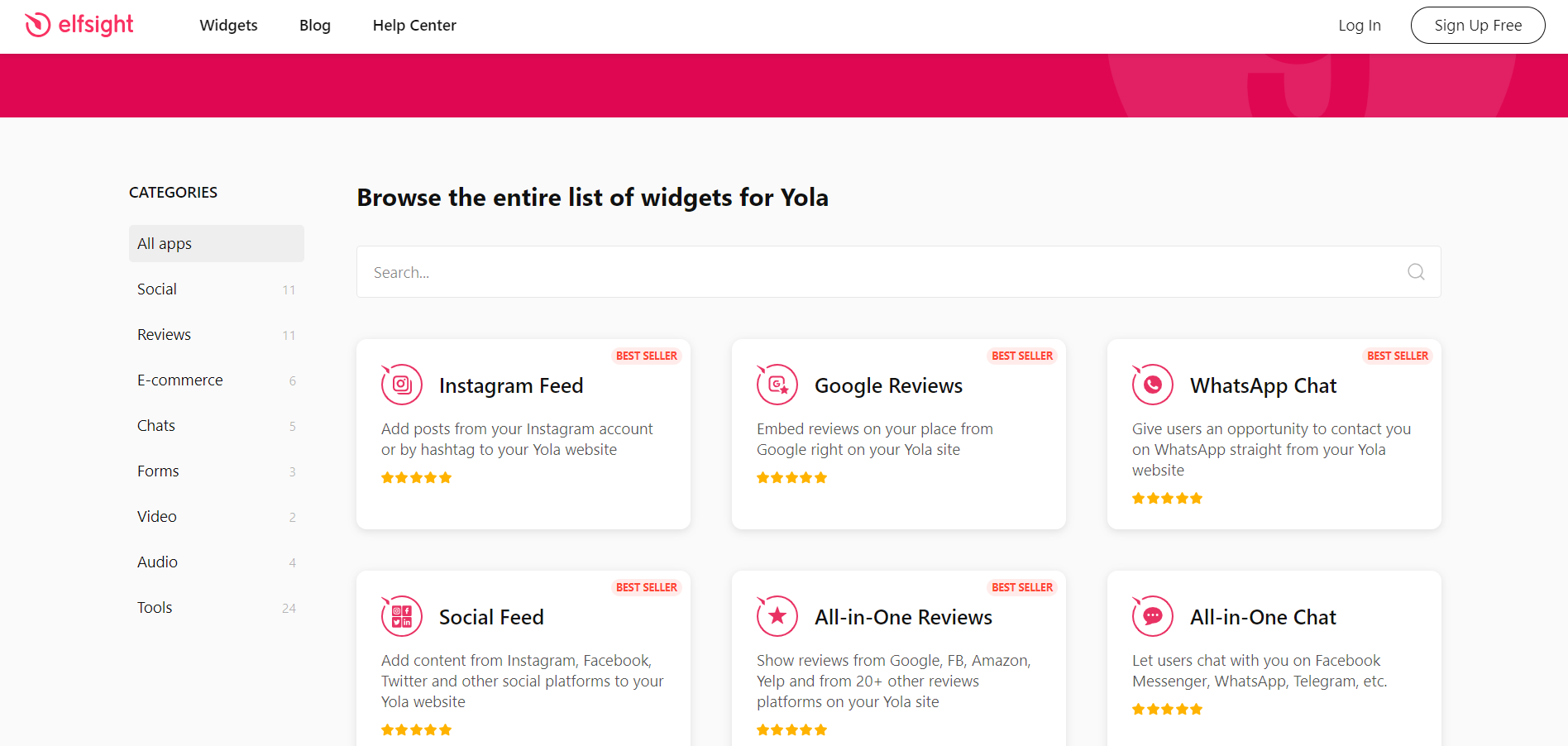
Marketing Features
Design FunctionalitiesRepresents how well each platform allows for creative design and customization of websites.Score Components:
- Template Variety (30%): Range and quality of design templates.
- Customization (30%): Flexibility and options for design alterations.
- User Interface (20%): Ease and intuitiveness of the design process.
- Responsiveness (10%): Adaptability to different devices and screen sizes.
- Innovation (10%): Unique design features and tools.
 6.5
6.5
 5.7
5.7
🏆
Overall Winner: Yola
. Yola stands out for its more comprehensive marketing tools, especially in SEO, email marketing, and social media integration. SubHub, while lacking in social media integration, offers strong features in SEO and email marketing.

|

|
|
|---|---|---|
|
SEO Tools |
|
|
|
Email Marketing |
|
|
|
Blogging |
|
|
|
Social Media Integration |
|
|
|
Analytics and Reporting |
|
|
|
Ads and Promotions |
|
|
Customer Support
Customer supportEvaluates the quality and availability of support options.Score Components:
- Response time (40%): Speed of support responses.
- Support quality (30%): Effectiveness and helpfulness of the support.
- Availability (20%): Range of support channels (phone, chat, email).
- Resource richness (10%): Quality of self-help and educational materials.
 6.3
6.3
 6.3
6.3
🏆 Winner: Tie
. When comparing Yola vs SubHub, both platforms offer robust customer support, each with its unique strengths. Yola provides 24/7 email support, with priority responses for Bronze, Silver, and Gold customers, and a call-you-back service for personalized assistance. Additionally, Yola supports inquiries via social media channels, ensuring users have multiple ways to get help.
SubHub, on the other hand, offers customer support through email and a support portal, where users can submit detailed queries and attach files. SubHub also provides an FAQ section for immediate answers to common questions, emphasizing accessible and responsive support.
Both Yola and SubHub have a customer support score of 6.3, indicating that while they offer solid support options, there is room for improvement in their services.
Security
SecurityLooks at the platforms’ security measures and data protection.Score Components:
- Data protection (40%): Safeguards for user and customer data.
- SSL and encryption (30%): Implementation of secure connections.
- Compliance (20%): Adherence to industry security standards.
- Regular updates (10%): Frequency of security updates and patches.
 8.3
8.3
 4.0
4.0
🏆
Winner: Yola
. Yola takes a comprehensive approach to security, with measures including SSL encryption, DDoS mitigation, firewalls, regular software updates, data backup, and recovery, as well as security audits and testing. These measures help protect against various threats such as data interception, denial-of-service attacks, unauthorized access, and system vulnerabilities. By prioritizing security at multiple levels, Yola aims to ensure the integrity and availability of its users’ websites, mitigating risks and enhancing overall trust and reliability in their platform.
SubHub, on the other hand, does not provide any information about its website security measures, which is a significant drawback. While it does outline its approach to data privacy in its privacy policy, the lack of transparency about website security is concerning. Therefore, Yola is the clear winner in this comparison.
AI Capabilities
AI capabilitiesMeasures the effectiveness of AI-driven features and tools.Score Components:
- Automation efficiency (40%): Impact of AI on streamlining processes.
- Personalization (30%): AI-driven customization for users or customers.
- AI-Assisted design (20%): Role of AI in website design and functionality.
- Data analysis (10%): Use of AI in interpreting user data and analytics.
 0.0
0.0
 0
0

|

|
|
|---|---|---|
|
Personalized Design |
|
|
|
SEO Optimization |
|
|
|
Customer Behavior Analysis |
|
|
|
Sales Predictions |
|
|
|
Inventory Management |
|
|
|
Content Generation |
|
|
🏆 Winner: None
. Neither Yola nor SubHub offer any AI capabilities. Both builders focus on providing a user-friendly interface and a range of features for building and managing an online presence, but they do not utilize AI to enhance the user experience or provide additional functionalities.
User Management
User ManagementAssesses the platforms’ capabilities in managing user roles, permissions, and accessibility.Score Components:
- Role Customization (40%): Flexibility in creating and defining user roles and
permissions. - Ease of Management (30%): User interface and tools for managing users.
- Access Control (20%): Effectiveness of access control measures for different user
levels. - Scalability (10%): Ability to manage a growing number of users efficiently.
 7.3
7.3
 5.2
5.2
🏆 Winner: Yola
. Both Yola and SubHub offer multi-user editing capabilities, but Yola scores higher in user management.
- Yola supports multi-user editing capabilities, allowing different levels of access and control based on the plan chosen. The primary account holder, often referred to as the Owner or Administrator, possesses comprehensive control over the website, including the ability to edit content, manage settings, and extend invitations to collaborators for website modification. Collaborators or Editors, invited by the account holder, can edit the website to varying degrees, which might range from content editing to page management, depending on the permissions granted by Yola’s platform. The number of users permitted to edit a website and the scope of their roles and permissions may vary, typically increasing with higher-tier subscription plans.
- Subhub allows multiple user accounts, however the platform does not specify how many accounts are supported.
SubHub User Roles and Access Levels:
| Role | Description | Access Highlights |
|---|---|---|
| Administrator | Full access to the platform except for Homepage and Course Editor. | Can manage all aspects of the platform, including content, store, and member management. |
| Content Management | Focuses on managing and organizing content within the platform. | Can access and manage content-related features but does not have access to Homepage or Course Editor. |
| Store (access only) | Specializes in handling the platform’s store features. | Limited to store management functions; no access to Homepage, Course Editor, or member management. |
| Member Manager (access only) | Oversees member accounts, roles, and subscriptions. | Can manage members and their subscriptions but cannot access Homepage, Course Editor, or store management. |
| Origin Admin Email | The initial administrator with the highest level of access, including Homepage and Course Editor. | Exclusive access to Homepage and Course Editor, on top of what the Administrator role provides. |
Additional Features

|

|
|
|---|---|---|
|
SSL Certificate |
|
|
|
Custom Domain |
|
|
|
Free Custom Domain Included |
|
|
|
International Domains |
|
|
|
Mobile Responsive |
|
|
|
Page Speed |
|
|
|
Website Builder Mobile App |
|
|
|
Convert a Website To An App |
|
|
|
Website Analytics |
|
|
|
Multilingual Sites |
|
|
|
Multiple Users |
|
|
Yola vs SubHub: User Feedback
Yola seems to have received mostly positive reviews. Users appreciate its professional templates, ease of use, affordability, and customer service. They find it ideal for website creation, especially for those without specialized knowledge. However, some users express dissatisfaction with aspects such as data security, customization limitations, and lack of certain features like chat support. Overall, Yola appears to solve the problem of easy website creation and maintenance for businesses and individuals, offering a range of templates and tools at a reasonable price point.
User feedback on SubHub presents a mix of positive and negative experiences, emphasizing the platform’s feature-rich environment and customizable templates. Users appreciate the flexibility and the quality of customer service, highlighting the platform’s continual updates and support as key benefits. However, some users express dissatisfaction with aspects such as the platform’s interface, lack of community features, and service fees for ticket resale. Concerns were also raised about the custom design service and mobile-friendly solutions taking longer than expected.
The making of this blog
We followed a clear, step-by-step process to write and research this article.
Yola vs SubHub: FAQ
Which platform is better for creating a membership site, Yola or SubHub?
Can I use Yola for ecommerce?
How do Yola and SubHub compare in terms of ease of use?
Which platform offers better customer support, Yola or SubHub?
Are there any differences in hosting quality between Yola and SubHub?
Which platform is more secure, Yola or SubHub?
Can I manage multiple users with either Yola or SubHub?
Do Yola and SubHub offer AI capabilities?
Which platform is recommended for building an informational or business website?










